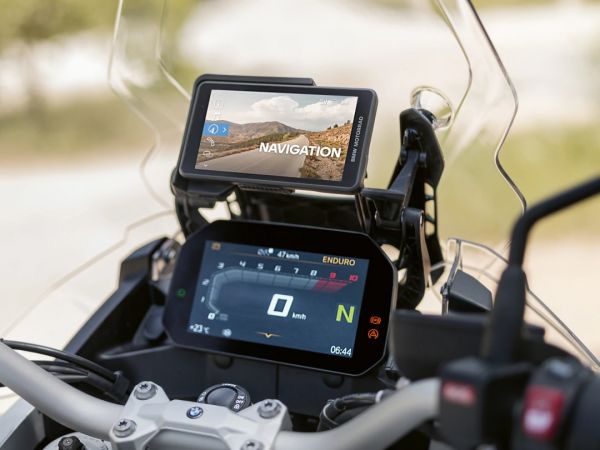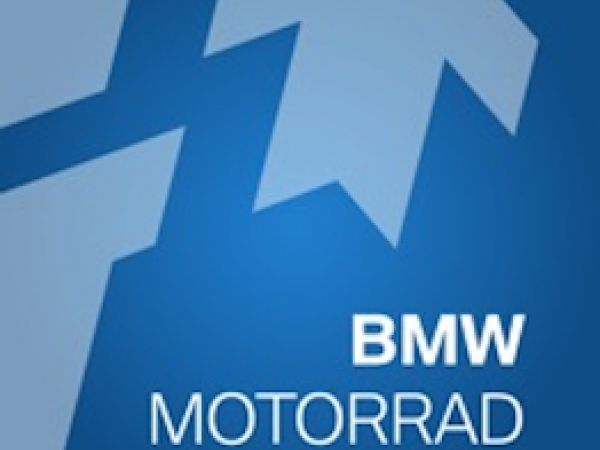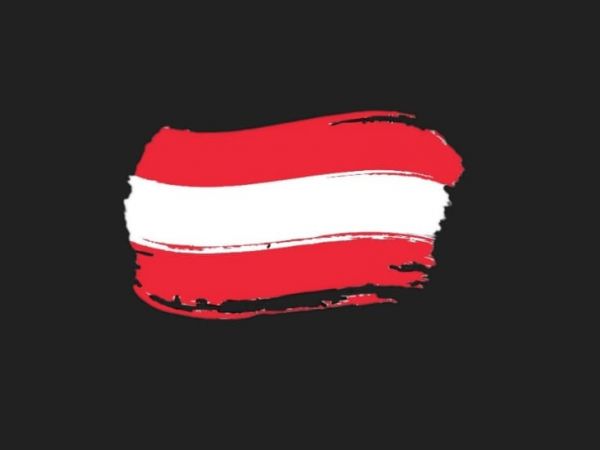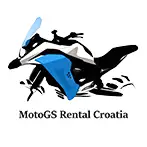Traffic regulations in Europe - Switzerland
Traffic regulations in Europe - Switzerland
Category: Traffic regulations in Europe
What should be considered on a motorcycle tour to or through Switzerland? What documents do you need to bring with you? MotoGS WorldTours and MotoGS Rental provide you with answers to your most important questions.
Errors and omissions excepted - all information without guarantee.
Basics:
Switzerland is not a member state of the EU. Switzerland also does NOT use the EURO as a means of payment.
Therefore, certain requirements must be met when entering Switzerland.
An identity card is sufficient for a tourist stay for EU citizens of up to 90 days. A passport or temporary passport is of course always more appropriate. Of course, non-EU citizens must carry a passport. As a rule, non-EU citizens can enter Switzerland without a visa. However, this also depends on the country of origin. Therefore, it makes sense for non-EU citizens to find out about the entry requirements for Switzerland on the following website VisaHQ. This is for your own safety.
All personal documents must be valid for at least 3 months upon departure.
Vehicle papers and other necessary documents:
The vehicle registration document or the registration certificate part I is mandatory.
The IVK - International Insurance Card (formerly Green Card, including CH) is valid as proof of liability insurance.
The EU driver's license is accepted in Switzerland, so that no international driver's license needs to be carried along as well. An international driver's license is required for non-EU citizens.
With a rented motorbike in Switzerland:
Motorcyclists traveling abroad with a vehicle that is not registered in their name should carry a usage permit from the lessor with them to be on the safe side.
This permit can be downloaded from this link.
Health insurance:
In general, every foreign traveler should definitely take out private international health insurance, since e.g., even German health insurance companies do not reimburse the costs for transport to suitable centers or back to Germany. In principle, all travelers to Switzerland, regardless of their country of origin, should take out international health insurance. This can also be done easily here via Global Rescue. Certainly this type of insurance protection is a bit more expensive than with other providers. However, as the name suggests, this type of insurance is built on Rescue. Therefore not comparable with other products. However, this should not be understood as advertising, it is a simple recommendation.
Speed limits in Switzerland:
50 km/h in built-up areas,
out of town 80 km/h,
100 km/h on expressways and
120 km/h on motorways.
Note: Serious traffic violations, alcohol offenses and speeding are punished with particularly high fines and penalties (imprisonment, driver's license suspension, vehicle expropriation). Foreigners are usually required to pay the fine on the spot. As a rule, there is no enforcement beyond the national borders, which is why enforcement is carried out on the spot.
The alcohol limit:
As in many other countries, the blood alcohol limit in Switzerland is 0.5‰.
For novice riders (less than 4 years of riding experience), 0.1‰ applies.
Daytime running lights:
Motorcycles must also be ridden with the lights on during the day. If the motorcycle does not have LED lighting, it is advisable to take spare bulbs with you in case you need to replace defective bulbs.
Safety vests in Switzerland:
In Switzerland, a first-aid kit and a high-visibility vest are not part of the compulsory inventory. However, it is always recommended to take it with you for your own safety. It is also always advisable to carry a breakdown triangle and a breakdown light.
Radar detectors:
It is forbidden to carry and use radar warning devices that are ready for use. GPS navigation devices that warn of speed checks as part of their additional functions are also prohibited. The same applies e.g. for an app on your smartphone. Non-compliance can result in high fines or imprisonment. The device will be confiscated and destroyed.
Dash cam:
The use of a dash cam is not recommended, as there are significant data protection concerns in Switzerland. However, it is not forbidden.
Further Recommendation:
Carrying spare glasses is recommended. Because if the glasses break and can no longer be worn and at the same time the wearing of glasses is noted in the driver's license, the journey may NOT be continued.
Correct behavior in the event of an accident or breakdown:
Accidents involving personal injury must be reported to the police immediately. The damage must be recorded in a police damage report. In addition, the use of the European Accident Report is recommended.
Special features in Switzerland:
Motorbikes are not allowed to ride side by side or next to bicycles or mopeds.
Motorbikes are not allowed to ride past the right of a convoy of vehicles.
Introduction of "noise cameras" in Switzerland:
Anyone who is too loud will be flashed!
A noise camera works similar to a speed camera, except that it does not show who is going too fast, but who is too loud. If the vehicle exceeds a certain noise limit, this is indicated by the device.
In some places in Switzerland, mobile devices are already being used to warn riders of excessively loud motorcycles that the noise limit is exceeded by displaying a corresponding text ("Quieter!").
Emergency numbers in Switzerland:
Uniform emergency number: 112
Police: 117
Fire department: 118
Ambulance: 144
Lifeguard: 1414
from your cell phone: country code for Switzerland +41 + emergency number
Toll in Switzerland:
The toll is also an important issue in Switzerland, because the motorways and motorway-like roads and national roads in Switzerland are subject to tolls. Toll roads can be recognized by the white and green signs. Important to know: Further costs and restrictions are possible in Alpine tunnels and on passes. These include the Great St. Bernhard Tunnel and the Munt la Schera Tunnel
This applies to all vehicles without exception - the vignette must also be attached to motorcycles in Switzerland.
Payment methode:
Motorway tolls are paid annually and evidenced by a self-adhesive vignette that must be attached to the vehicle in a clearly visible place. For easier identification, the vignette has a different color each year. It is valid from December 1st of the previous year to January 31st of the following year.
Are there different vignettes?
The Swiss toll system only provides for this vignette, which is valid for 14 months, for all vehicles. It currently costs 40 Swiss francs for the entire period of validity. There are no special tariffs, not even for seasonal registrations or for vehicles from abroad that are in transit. Anyone who is on one of the roads that require a vignette after crossing the national border must present a valid vignette.
Attention: This obligation actually applies directly from the national border. Riders who buy their vignette after entering in Switzerland can be fined CHF 200 even on the short journey to the first motorway exit. Controls are carried out by both the Swiss police and customs.
Where can you buy the vignettes?
In Switzerland, you can purchase the currently valid vignette at all petrol stations, post offices, car repair shops, road traffic offices and at the TCS mobility club sales outlets. If you come to Switzerland from one of the neighboring countries, you will be informed of the vignette obligation and corresponding points of sale before the border by signs. The last option is to buy in one of the Swiss customs offices, which are located directly at the border crossing.
Where does the vignette have to be attached to the motorcycle?
If you want to avoid a fine, you have to make sure that you attach the vignette to your vehicle correctly. But where do you stick the vignette? On a car you can easily stick them on the inside of the windscreen, but on a motorcycle this is not so easy. The Federal Customs Administration (FCA) states that the vignette should be affixed “to motorcycles without a windscreen and motorcycles with a windscreen in a non-replaceable, easily accessible place”. If you want to be absolutely sure, you can attach it to the fairing, the frame, the windshield (if you have one) or the fork.
Important to know:
Access restrictions and city toll:
The city of Geneva has restricted access restrictions. However, this access restriction does not usually include motorcycles. Unless the motorcycle has an emission standard Euro 0-1, which is certainly very rare. As a rule, free access applies to motorcycles with few exceptions.
Since this regulation is currently subject to constant change and/or expansion, it makes sense to obtain detailed information in advance before entering Geneva city center under City Access Ordinance in Europe in order to avoid unpleasant surprises.
In the event of increased air pollution, the "Stick´AIR" environmental sticker is mandatory for all vehicles, including foreign vehicles, as part of the “Differentiated Traffic / Circulation différenciée” measure. In addition, a general speed limit of 80 km/h applies.
Large parts of the city as well as parts of the municipalities of Carouge, Cologny, Lancy and Vernier become environmental zones in the event of air pollution. It is signposted.
You then need at least the red "Stick'AIR badge" to ride in. If the air pollution persists, vehicles with red stickers will be banned from riding, later also for vehicles with orange stickers.
Where can you get the environmental sticker?
The "Stick'AIR" environmental badges correspond to the categories of the French environmental badges "Crit'Air", which are also valid in the canton of Geneva. The "Stick'AIR badges" can be purchased for CHF 5 at the counters of the cantonal traffic office (Office cantonal des véhicules), at the Fondation des Parkings, at car repair shops and petrol stations as well as online (plus shipping costs CHF 1.43).
Canton Vehicle Office
Route de Veyrier 86
1227 Carouge, Switzerland
Phone: +41 22 3883030
E-Mail: vehicules@etat.ge.ch
or
Fondation des Parkings
Pl. de l'Etoile 1,
1227 Carouge, Switzerland
As of 06/28/2023

TAGS
visahq vehicle papers and other necessary documents swiss stick'air badges speed limits in swiss radar detectors introduction of "noise cameras" in swiss global rescue geneva french environmental badges fondation des parkings crit'air city access ordinance in europe canton vehicle officeShare Your Thoughts
Share your experiences, questions, or suggestions!
Comments from Fellow Riders
Nobody has commented yet – your thoughts?
Blog categories
Rent a motorcycle in Split Croatia

* BMW F750GS - lowered
The perfect rental motorcycle - the BMW F750GS. This motorcycle is the new standard in the middle class ...

* BMW F750GS
The perfect rental motorcycle - the BMW F750GS. This motorcycle is the new standard in the middle class ...

* BMW F800GS
This bike has ADVENTURE IN THE BLOOD!
Live for the challenge. Ride further where others don't ride. Turn the challenges into ...

* BMW F850GS
ADVENTURE IN THE BLOOD
Live for the challenge. Ride further where others don`t not ride. Turn challenges into opportunities.

* BMW F900GS Adventure
AS UNIQUE AS NEW ADVENTURES!
Hungry for experiences and something different? Your GS is already waiting for you. Ready to ...

* BMW R1250GS - lowered
Whether on extended tours or off-road: The BMW R1250GS with its boxer engine combines driving dynamics ...

* BMW R1250GS
Whether on extended tours or off-road: The BMW R1250GS with its boxer engine combines driving dynamics ...

* BMW R1300GS (DSA)
There is no such thing as a too big project, just the wrong equipment. Luckily, you do not have to worry about ...

* BMW R1300GS (DSA + ASA)
Your wanderlust knows only one answer: BMW R1300GS. When you set off for distant destinations ...

Motorcycle tires
Motorcycle tires | Travel enduro | Enduro

Ride the Trans Euro Trail (TET)
Good reasons you need to ride the Trans Euro Trail (TET).

The magic of the Balkans
Whenever “The Balkans” comes to mind, the first thought that comes to mind is: “I want my next vacation SOON.”

The International Driving Permit
What you should consider with your national motorcycle license ...

BMW Motorcycle ConnectedRide Navigator
The new BMW Motorcycle ConnectedRide Navigator ...

BMW-ConnectedRide Cradle and ConnectedApp
Riders of new BMW models have several options for using information and entertainment ...

Traffic regulations in Europe - Albania
What should be considered on a motorcycle tour to or through Albania?

Traffic regulations in Europe - Austria
What should be considered on a motorcycle tour to or through Austria?

Traffic regulations in Europe - Bosnia Herzegovina
What should be considered on a motorcycle tour to or through Bosnia and Herzegovina?

Traffic regulations in Europe - Croatia
What should be considered on a motorcycle tour to or through Croatia?

Traffic regulations in Europe - France
What should be considered on a motorcycle tour to or through France?

Traffic regulations in Europe - Germany
What should be considered on a motorcycle tour to or through Germany?







